
3rd World Hydrogen Conference Asean 2024
JUL. 3-4 | BANGKOK, THAILAND | IN-PERSON EVENT


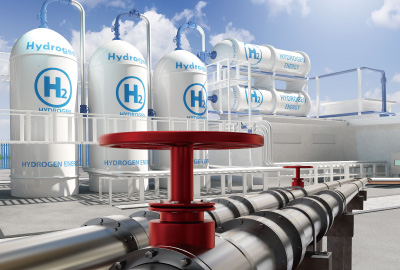
Southeast Asia's policy choices will have huge implications for its future energy mix. With today's policies, energy demand, fossil fuel imports and emissions are set to increase, governments can introduce policies and measures to boost energy security and affordability, reduce emissions and ensure energy access for all. The region's fuel import needs and energy security vulnerabilities will rise sharply in the decades to come without a strong effort to accelerate transitions. Well-managed energy transitions will shield Southeast Asia from the impacts of volatile international markets, but energy security during transitions does not come for free. Southeast Asia must attract much higher levels of energy sector investment to accelerate its clean energy transition and meet the rising demand for energy services. Energy investment: attracting finance requires upgrading clean energy policy and regulatory frameworks and addressing a wide range of financial hurdles across the sectors.
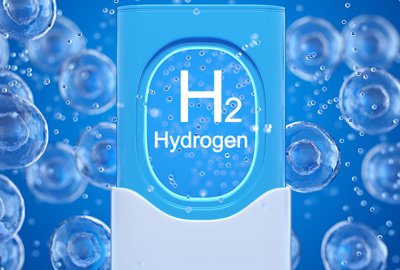
Many developing countries are endowed with vast land and renewable resources and therefore have the potential to produce clean hydrogen at scale for export. Becoming leading clean hydrogen producers also offers them an opportunity to leapfrog domestic end-use infrastructure and spur economy-wide innovation and investments.
Given its transformative potential, the development of clean hydrogen needs to be accelerated if the world is to achieve its net-zero ambitions. But the development of hydrogen technologies and applications still face significant challenges – costs remain high, safety standards are still being developed, supporting infrastructure is at a nascent stage. Multilateral development banks (MDBs) have the responsibility – and the wherewithal – to support the development of the clean hydrogen sector by de-risking the hydrogen economy and catalyzing technological innovation.
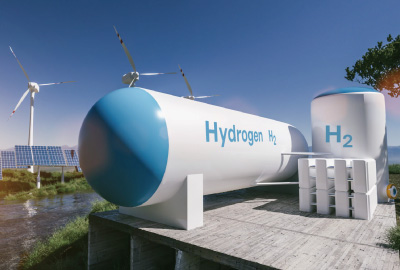
The progress of hydrogen energy in terms of technologies and supply chains is appealing to member countries of the Association of Southeast Asian Nations (ASEAN). Countries with the advantages of fossil fuel resources and existing infrastructure can export grey hydrogen energy until 2025. This could help expand hydrogen-related infrastructure and form a certain level of economies of scale to prepare for the next phase of development of blue and green hydrogen energy. From 2026 to 2030, ASEAN could shift to blue hydrogen energy exports with the help of carbon capture, utilization, and storage. However, the domestic applications of hydrogen energy will remain economically uncompetitive in most ASEAN countries.
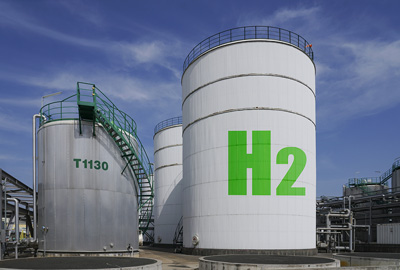
ASEAN Member States (AMS) observe that there is a need for hydrogen derived energy for various reasons. One, it will be a green energy supply and will also enhance indigenous energy supplies, thereby improving energy security. In addition, it will assist in reducing imports. According to data, AMS currently consume 4.5 million barrels of oil per day but produce only 2.5 million barrels per day. The remaining supply gap is imported. The demand for oil is driven mainly by the transport sector, especially land transport. Currently, electrifying road vehicle fleets seems to be the most desirable way to address the AMS' energy security concerns, as well as its financial and fiscal burdens, and emissions and pollution challenges faced by the road transport sector. However, the concept of battery electric vehicles (BEVs) has some limitations. Various studies have shown that if electricity is not generated by energy sources that are sufficiently clean and green, BEVs will cause more emissions and pollution than fossil fuel-powered vehicles.
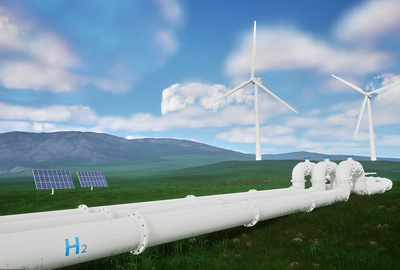
The cost competitiveness of producing green hydrogen is key for the wide adoption of hydrogen in the foreseeable future. The current cost of supplying hydrogen is about three to five times the cost of gas, mainly due to the limited investment in hydrogen supply chains and the lack of a wider adoption strategy for hydrogen use. A large-scale hydrogen-based energy transition from gray and blue hydrogen toward green hydrogen could facilitate a global shift to renewables.
The cost of green hydrogen production could decline even more quickly if the government, business players, and stakeholders join hands to promote the wider use of green hydrogen by allowing more investment and R&D in hydrogen fuels. Investors may look into the industrialization of electrolyzer manufacturing; improvements in electrolyzer efficiency, operations, and maintenance; and the use of low-cost renewable power as hydrogen as enablers to increase the penetration of variable renewable energy into the power grid.
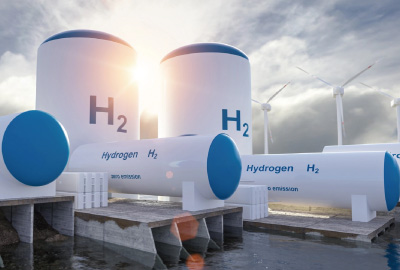
Scaling up clean energy technologies without infringing on water access is essential in ensuring real and lasting solutions to the climate crisis. Green hydrogen has made a splash for its role in addressing the 30 percent of global emissions from industries that have no alternatives for decarbonization, making it essential to consider this technology's impacts on water supply.
Zooming out beyond the bounds of the hydrogen production plant, the source of electricity and/or natural gas could add "embodied" water consumption to all hydrogen pathways. Electricity generation- for use to power the fossil-based hydrogen plant or split water via electrolysis can have a range of water requirements depending on the source. Green hydrogen's reliance on renewables minimizes additional water consumption.
Main Conference
Sub-Streams
Buffet Lunch
Documentation Package
Main Conference
To know more Brands
3 One to One Meetings
Known by 300+ Delegates
Reported by all Media Partners
Main Conference
Standard Exhibition Booth
3 One to One Meetings
Sub-Streams
Documentation Package



























































